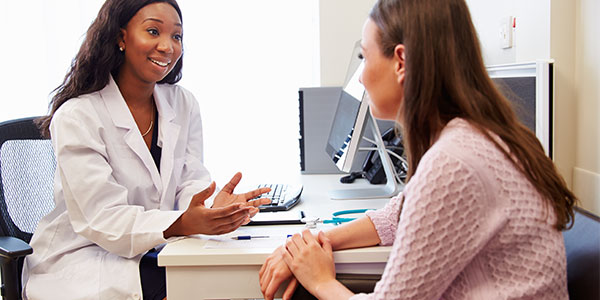Learning that the results of your recent pap smear came back abnormal can generate feelings of anxiety and concern. Rest assured that the gynecologists and women’s health specialists in the Sutter Health network can help you understand your results and treatment options.

Abnormal pap smear results are very common and can indicate a variety of issues. Some of the more serious issues include the presence of human papillomavirus (HPV) or precancerous cells on the cervix. If you’re younger than age 30, your doctor may not have tested you for HPV—which is a separate test from the pap smear—so you may be asked to undergo additional testing.
Depending on your health history, your doctor may also order a repeat pap smear test or a more detailed examination called colposcopy. During a colposcopy, your gynecologist uses a microscope to get a more detailed look at the cells on your cervix. After gently swabbing your cervix with a vinegar or iodine solution, your doctor looks for signs of abnormal tissue. If your doctor notices any suspicious cells, a small biopsy of the tissue may be taken and sent to the lab for further examination.
If your biopsy results indicate the presence of precancerous cells or a type of HPV that’s more likely to cause cancer, your doctor may suggest treating the area using cryosurgery. During this simple outpatient procedure, your doctor uses liquid nitrogen to freeze and destroy the precancerous cells. The procedure is much like a typical vaginal exam and takes only a few minutes to complete.
Your doctor may suggest a different treatment method for precancerous cells called the loop electrosurgical excision procedure (LEEP). During this outpatient procedure, your doctor applies a numbing agent to the cervix so you won’t feel any pain. Then a thin wire loop that emits an electrical current cuts away a small layer of cells on your cervix. The electrical current cauterizes the tissue on your cervix to help prevent bleeding. In many cases, this procedure removes all of the abnormal cells and additional surgery isn’t needed.
Another procedure that can both diagnose and treat abnormal cells is the cold knife cone biopsy. This procedure is done in a hospital setting under general anesthesia or other sedation. During this procedure, your doctor removes a cone-shaped area of tissue around the cervix. The sample is examined under a microscope for signs of cancer. If all of the diseased cells are removed, the biopsy procedure can also serve as a curative treatment.
Talk to your doctor about which treatment option is best for you. Ask how often you need to have a pap smear after undergoing any of these treatments.










